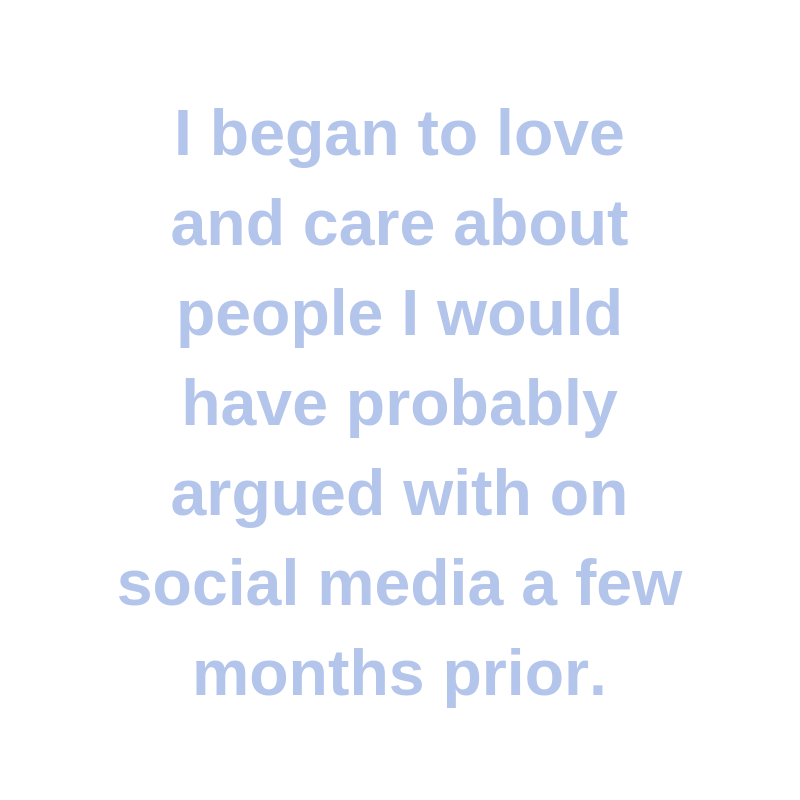At the end of last spring while praying I asked God, “Is it even possible to have a healthy friendship with someone whose ideas about the world seem to directly oppose mine?” This question came up for me after I realized that all my friends, more or less, had generally the same views and opinions as me. I no longer had anyone to challenge my assumptions about the world and that did not sit right with me. So I prayed for God to send me someone who would disagree with me. The funny thing about God is that He often answers us in ways and at times that we do not expect.
The answer to my prayer came in the form of new friends. Over the course of the summer I had the opportunity to serve alongside other college students from across the country. Everyone came from different backgrounds, political belief, and socio economic status’. There were few people who looked and perceived the world in the way I did. With these differing contexts comes differing ideas about the way the world should be. Our views were bound to clashed at one point or another. In those moments, God challenged the way in which I reacted. While my knee jerk reaction was to tell them that they were incorrect and provide them with the sources to prove it, the Holy Spirit had me stop and listen. I have grown accustomed to “call out culture,” which is when someone says something you disagree with you tell anyone who can listen about how wrong they are. While I do believe that “call out culture” can be useful in situations to bring about awareness, it can also be damaging to personal and relational growth. Relationships require the grace that is inhibited when we only focus on our own perspectives.

So this summer I listened. I asked questions of others and of myself. I began to love and care about people I would have probably argued with on social media a few months prior. I reflected on the people in my life who had shaped my outlook on the world; the stories of hardship that once opened my eyes for the first time. That kind of change happens through genuine bonds.
As you go throughout your time in college, you will meet many different people. Each of them will carry with them their own assumptions and perspectives about how this world works. This year, I challenge you to lean into that. Lean into the awkward conversations. Did a classmate say something that you disagree with? Take the time to ask how they came to that conclusion. Understanding an opposing view does one of two things: it either changes your mind or helps you understand your own view with more depth. If you want your mind changed or to change someone else’s, then become friends. You will find that people are much more than the thesis they posted to social media. It is through relationship that we will see reconciliation.
Disclaimer: If you are in a relationship with someone who’s views cause spiritual, emotional, or physical damage to you or others, please do not feel bound to stay.
 Biola University
Biola University




